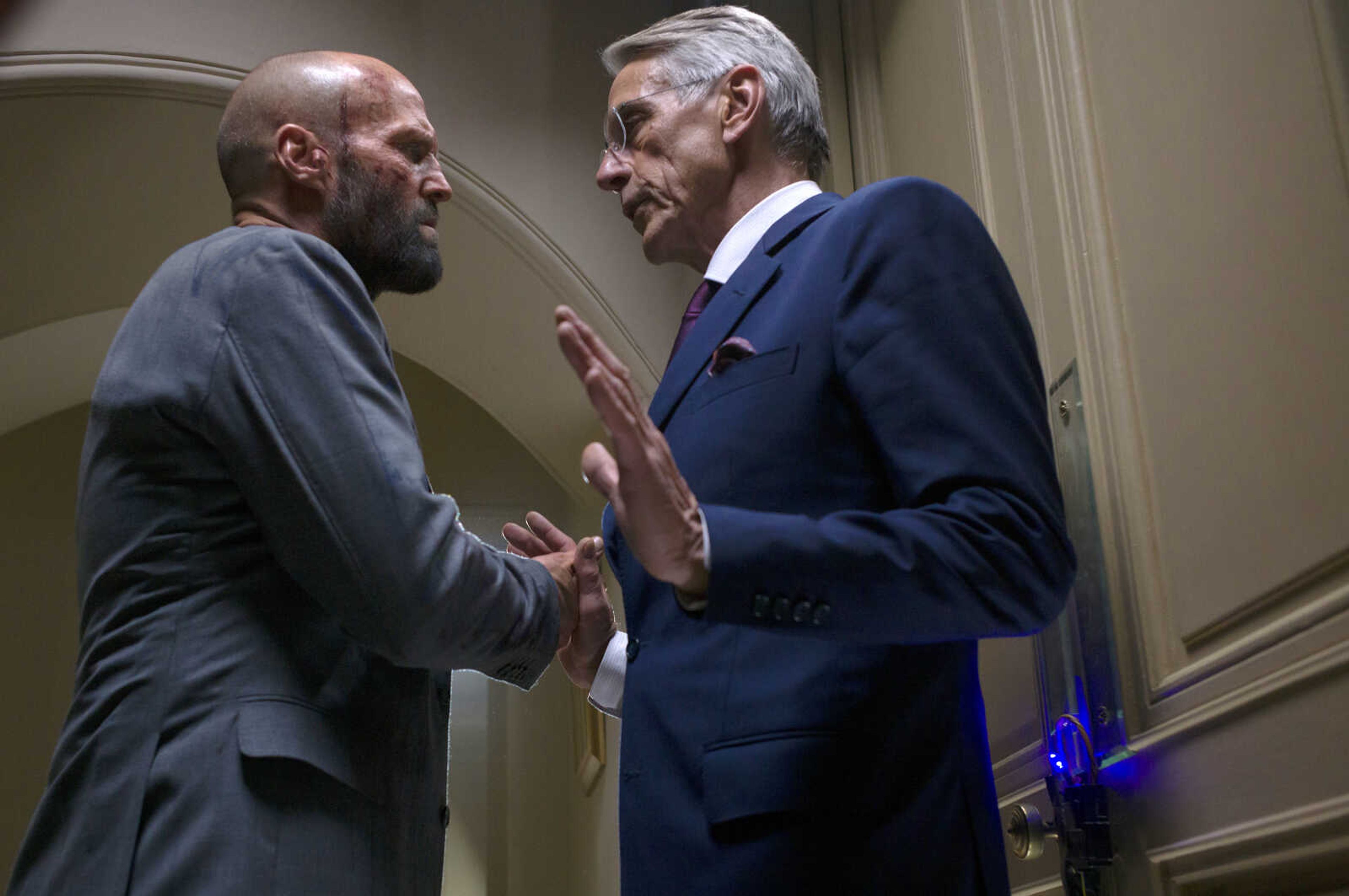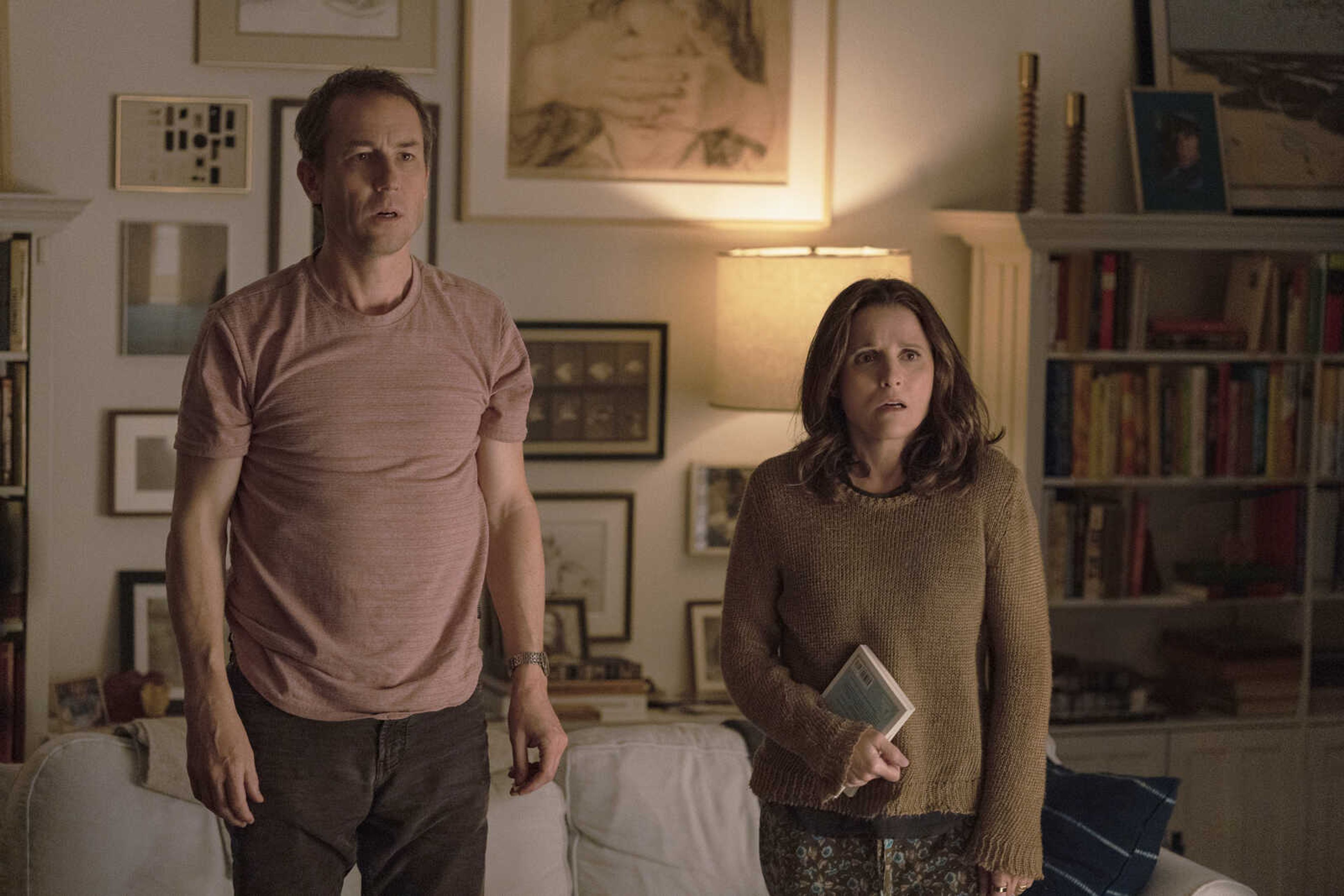Other-worldly film 'Fellowship' elevates neglected genre
LOS ANGELES Nothing as fantastically removed from our own world has ever done as well with Academy Awards voters as "The Lord of the Rings: The Fellowship of the Ring" has so far. Then again, Hollywood has never made anything quite like it: a sprawling, other-worldly epic filled with mythical creatures, which takes itself as seriously as its straight-drama rivals for best picture, "A Beautiful Mind" and "In the Bedroom." (The other nominees are "Moulin Rouge" and "Gosford Park.")...
LOS ANGELES
Nothing as fantastically removed from our own world has ever done as well with Academy Awards voters as "The Lord of the Rings: The Fellowship of the Ring" has so far.
Then again, Hollywood has never made anything quite like it: a sprawling, other-worldly epic filled with mythical creatures, which takes itself as seriously as its straight-drama rivals for best picture, "A Beautiful Mind" and "In the Bedroom." (The other nominees are "Moulin Rouge" and "Gosford Park.")
Adapted from the first installment of J.R.R. Tolkien's Middle-earth fantasy trilogy, "Fellowship of the Ring" has a leading 13 Oscar nominations, best picture and director among them.
That puts it in the rarefied company of "Gone With the Wind," "From Here to Eternity" and four other films that have scored 13 nominations, all tied for second place behind "All About Eve" and "Titanic," the record-holders with 14 each.
"Somehow, you've entered a sort of category in film history you could never have dreamed," said Peter Jackson, director of "Fellowship of the Ring" and its sequels, which come out this Christmas and next.
The number of nominations is especially notable considering how reluctant Oscar voters have been to embrace the mythical and unearthly. "Fellowship of the Ring" is the most "out there" film to compete for the top Oscar since a five-year stretch from 1977 to 1982, when George Lucas and Steven Spielberg produced such fantastical best-picture nominees as "Star Wars," "Raiders of the Lost Ark" and "E.T. The Extra-Terrestrial."
Those movies all lost best picture, as has every other nominated film that's had a strong fantasy, science-fiction, fairy-tale or supernatural edge, including "The Sixth Sense," "Babe," "The Green Mile," "The Exorcist," "Ghost," "A Clockwork Orange" and "The Wizard of Oz."
Perhaps that's why "Lord of the Rings" distributor New Line Cinema downplays the film's ethereal aspects. New Line executives prefer to call it an "epic adventure," not "fantasy."
"It's not about genre. It's about material," said Bob Shaye, New Line founder and co-chairman.
"This could be 'Star Wars,' it could be 'As Good as It Gets,' it could be a small personal film. Anything that really touches the heart and soul. ... And our film has, not just with our professional colleagues but general audiences, when you look at its incredible box-office success."
"Fellowship of the Ring" is pushing $300 million domestically. That sort of success has worked against films come awards season.
Oscar voters often choose films they deem "important" rather than populist or commercial. "Star Wars" lost the best-picture race to "Annie Hall," "Raiders of the Lost Ark" lost to "Chariots of Fire" and "E.T." lost to "Gandhi."
The visual wizardry used to create "Star Wars," "Raiders" and "E.T." may have undermined their Oscar chances as well, with voters reluctant to pick something heavy on special effects.
"I think those films were considered maybe kid films," said director John Singleton, who closely followed the "Raiders" and "E.T." Oscar races as a high school student. "There was an attitude that they were throw-away special-effects films, as if that discounted their merit as works of cinematic art."
"Raiders" and "E.T." also came from a director who did not achieve critical honors from his peers until he turned to weightier films like "Schindler's List" and "Saving Private Ryan."
"It's the curse of the three S's: special effects, success and Spielberg, the great evils of the 1980s," said Simon Wells, who recently directed the remake of "The Time Machine" for Spielberg's DreamWorks studio.
"I do think visual effects movies now are becoming more acceptable."
"Titanic" helped dispel the notion that special effects and blockbuster status could sink a film's Oscar prospects. Loaded with visual effects, the all-time box-office champ swept the Oscars four years ago.
Likewise, the effects-heavy hit "Gladiator" took best picture a year ago. Both "Gladiator" and "Fellowship of the Ring" are rousing, action-laden tales of battle and bravery.
Past fantasy adventures often have suffered from sword-and-sorcery silliness or sci-fi campiness. Jackson's trilogy differs in that it was based on a venerated literary work that the filmmakers adapted with reverence.
"It's all in the execution," Singleton said. "They could have done a camp version of it, and they didn't. They took it seriously."
Members of the Academy of Motion Picture Arts and Sciences took it seriously enough to single out the screenplay and co-star Ian McKellen for Oscar nominations.
"How difficult is it to play a bearded wizard in a pointy hat and make it a credible performance?" Jackson said. "He gave Gandalf a dignity and a quiet sort of emotional strength to the point where people cry when he dies in the film."
"A Beautiful Mind," starring Russell Crowe as schizophrenic math genius John Nash, is the sort of uplifting story of triumph over adversity that the Academy often favors. Yet "Fellowship of the Ring" could dazzle across the board, offering something for voters in every academy branch -- actors, directors, writers, musicians and technical artists -- to admire.
And unlike other years, when a clear Oscar front-runner often emerges as other movie awards play out, this season's film honors have been divided among several competitors.
"A Beautiful Mind" won the Golden Globe for dramatic films, and its director, Ron Howard, earned top honors over Jackson from the Directors Guild of America. But "Fellowship of the Ring" took the American Film Institute honor and the British Film Academy Award for best picture.
"Moulin Rouge" won the musical or comedy prize at the Golden Globes and was a surprise winner for best picture at the Producers Guild awards.
"Gosford Park" and "In the Bedroom" are critical darlings but are considered longshots to win.
Even if it loses the best-picture trophy, "Fellowship of the Ring" is a strong contender in most technical categories and might come away with the most Oscars.
The outcome will depend on how viscerally academy members buy into the big-screen world of Tolkien and the dilemmas of his Middle-earth inhabitants.
"What we tried to do is make a fantasy film with an emotional truth so that the audience could relate to the characters as real characters, whether they're hobbits or wizards or elves," Jackson said. "If you do that with an integrity to the story, it can transcend the genre."
Connect with the Southeast Missourian Newsroom:
For corrections to this story or other insights for the editor, click here. To submit a letter to the editor, click here. To learn about the Southeast Missourian’s AI Policy, click here.








